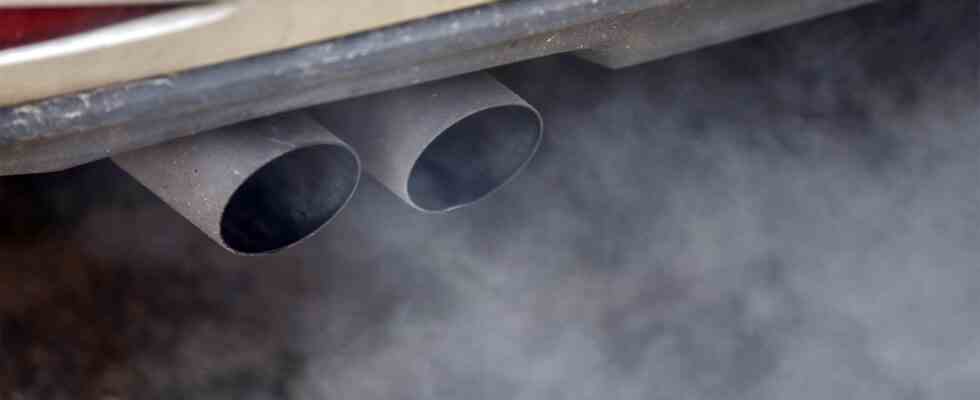As of: 06/28/2022 7:23 p.m
The traffic light coalition has agreed on a common position on the possible end of combustion engines in Europe. According to this, cars with combustion engines should also be allowed to be registered after 2035 if they use so-called e-fuels.
In the dispute over a possible phasing out of combustion engines in Europe, the German government has agreed on a common position during the ongoing EU negotiations. Accordingly, cars with combustion engines should also be allowed to be registered after 2035 if they use climate-friendly synthetic fuels (e-fuels).
Federal Transport Minister Volker Wissing welcomed the agreement. The FDP politician said that this paved the way for approval in the EU Council of Ministers. The ban on the internal combustion engine is “off the table,” he added. The federal government has agreed that vehicles with combustion engines should also be re-registered after 2035 if they can be proven to be operated only with e-fuels.
In Luxembourg, the EU Commission will submit a specific proposal for both passenger cars and light commercial vehicles. This has always been the concern of the FDP and corresponds to what is laid out in the coalition agreement. “The fact that there were different interpretations was a problem. But we solved that today,” said Wissing.
tagesschau live: Statement by Transport Minister Wissing on the subject of combustion engines
6/28/2022 6:45 p.m
conditional consent
A government spokesman had previously announced that the federal government would support a proposal in the EU Council on fleet limits as a “contribution on the way to climate-neutral mobility”. This is equivalent to the ban on combustion engines. At the same time, the EU Commission has promised to make a proposal outside of the system of so-called CO2 fleet limits on how vehicles could be approved after 2035 that would then be operated “exclusively” with e-fuels. According to the common understanding of the federal government, this also applies to passenger cars and light commercial vehicles.
In the negotiations over the past few days, it has been possible to ensure that this concern of the coalition agreement is anchored in the text of the decision, according to the government spokesman: “Subject to this condition, the federal government would approve the proposal.”
Lindner disagrees with Lemke
It was previously unclear whether Germany would agree to the end of new combustion cars or abstain. The topic had caused a heated argument in the federal government, and the FDP had great concerns. She had insisted that after 2035, combustion cars that run on e-fuels could also be approved.
Federal Environment Minister Steffi Lemke, on the other hand, spoke together Morning magazine from ARD and ZDF only exceptions for internal combustion engines outside the passenger car sector if they use climate-friendly fuels. She cited fire engines, shipping and air traffic as examples.
Federal Environment Minister Steffi Lemke, B’90/Die Grünen, on the Federal Government’s line on the planned EU ban on combustion engines
Tagesschau 09:00 a.m., 28.6.2022
Finance Minister Christian Lindner contradicted this: “Combustion engines with CO2-free fuels should also be possible as a technology in all vehicles after 2035,” said the FDP politician. Lemke’s statements are surprising and do not correspond to the agreements. The FDP now seems to have prevailed.
Several EU countries against ban
But now the EU ministers responsible for the environment still have to agree. You are currently advising in Luxembourg. Long deliberations into the night are expected.
Countries such as Italy, Portugal, Bulgaria, Romania and Slovakia have also spoken out against the de facto ban on internal combustion engines and have called for an extension to 2040. It was not yet clear whether they would support the German compromise. For the proposal to pass, a qualified majority of EU ministers must agree.

